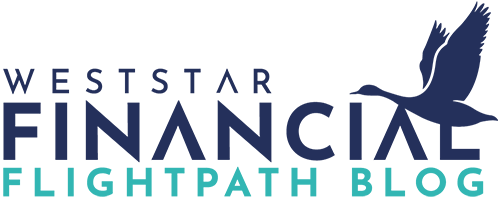
11 Sure Steps to Pursue Your Ideal 401(k) Plan Retirement Outcomes
401(k) ADVICE | GUIDANCE | INSIGHTS | OBSERVATIONS
You don’t need a financial advisor to tell you that in most of life’s endeavors, knowledge and a plan of action are critical for achieving ideal outcomes; it is pure common sense.
And yet, 45% of U.S. adults aged 40 to 59 say they’d rather visit the dentist than make an appointment with a financial advisor: this, despite solid evidence that a financial advisor can help them manage their near-term money goals and establish a reliable long-term plan for their future selves.
If Prosperity and Security in retirement are the result of informed decisions, why then do so many people leave these vital goals to chance?
It seems that the common sense of planning for something as important as your ideal retirement is not so common after all!
I’ve come to understand that some people might not be proud of the financial choices they’ve made, and probably don’t want to share their details with an outsider. I get it! The problem, however, is that the longer folks go without seeking guidance, the less likely they are to meet their various goals.
Serving as an advocate for someone’s future self, my quest is to improve their retirement readiness in incremental ways that are simple to adopt and easy to follow. I strive to understand the many facets that make their financial life personal and unique, and apply tools and resources to implement a goals-based plan of action.
What Challenges do 401(k) Retirement Savings Plan Participants Face Today?
 For most of us, the 401(k) plan will serve a major role in retirement, yet studies show the average employee is behind in their savings goals.
For most of us, the 401(k) plan will serve a major role in retirement, yet studies show the average employee is behind in their savings goals.
To have a positive impact that will become evident 10, 20, or 30-years from now, the time to act is today.
Because of the needs that will present themselves in retirement, it’s vital to capture people’s attention and to help them act to remedy their situations.
When it comes to managing their accounts and preparing for retirement, here are the top 11 challenges people regularly encounter, and what we do to overcome them.
- A Lack of Financial Literacy:
Many individuals lack basic financial knowledge, making it difficult for them to make informed decisions about their 401(k) investments and contributions. Whilst financial education resources and employer-sponsored workshops can empower participants to make better choices, our team walks them through their options within the context of their overall plan of action. We project into the future and look at the impacts of choices on their retirement provision blueprint.
- Overwhelmed by Investment Decisions:
Choosing appropriate investment options from the range provided in the 401(k) plan can be challenging, especially for those with limited knowledge of the financial markets. A wide array of investment options can lead to decision paralysis among plan participants.
Some participants may not accurately assess their risk tolerance, leading them to choose investments that are either too conservative or too aggressive for their comfort level.
To assist in decision-making, people deserve clear, concise information about each investment, along with tools and resources that help them match their risk tolerance and investment goals.
- Aligning and Rebalancing Your Portfolio to Meet Your Goals:
Life events such as marriage, the death of a spouse, divorce, or nearing retirement can significantly impact investment needs, but many people might not adjust their investment strategies accordingly.
We encourage clients to periodically review and adjust their investment choices, so their portfolio remains aligned with their goals. Part of this is providing guidance on diversification strategies that can help clients build a well-balanced portfolio.
- Making the Most of Tax Advantages:
Taxes can significantly erode savings over time, making it harder to accumulate wealth. 401(k) plans offer tax advantages, such as tax-deferred growth on contributions and potential tax deductions, allowing individuals to maximize their savings potential.
Along with ensuring that all our clients take advantage of employer matching contributions – when available – we explore potential tax advantages including Roth or mega backdoor Roth options.
- Balancing Contributions and Expenses:
Balancing everyday expenses with retirement savings can be difficult. Some people struggle to contribute regularly or contribute enough to meet their retirement goals. A combination of financial planning tools, escalation of contributions and budgeting guidance can help them to consistently allocate an appropriate portion of their income to retirement savings.
- Market Volatility and Emotional Decision Making:
 Economic uncertainties and market fluctuations can affect the value of investments, causing anxiety and uncertainty about the security of a client’s savings. Educating clients about the long-term nature of retirement investments and the importance of staying the course during market fluctuations can alleviate concerns. Diversification across various asset classes can also mitigate risks.
Economic uncertainties and market fluctuations can affect the value of investments, causing anxiety and uncertainty about the security of a client’s savings. Educating clients about the long-term nature of retirement investments and the importance of staying the course during market fluctuations can alleviate concerns. Diversification across various asset classes can also mitigate risks.
I always stress the dangers of emotional investing to help clients resist impulsive decisions based on short-term market movements.
- Loans and Withdrawals:
Some plan participants might be tempted to take out loans or make early withdrawals from their 401(k) accounts, which can significantly impact their retirement savings. I make certain to provide counselling on the consequences of early withdrawals, and explore alternative financial assistance options to discourage clients from tapping into their retirement funds prematurely.
- Changing Jobs:
When changing jobs, plan participants need to decide what to do with their 401(k) savings, such as rolling it over to a new employer’s plan, transferring it to an IRA, or cashing out.
We offer guidance and support during job transitions, educating participants about the various options available and the implications of each choice.
- Longevity and Inflation:
We help clients to ensure that their retirement savings are intended to last throughout their retirement.
The proper financial planning process, including estimating retirement expenses, accounting for inflation, healthcare costs and considering longevity risk helps clients make realistic assessments of their retirement needs.
- Healthcare Costs:
Rising healthcare costs can be a significant burden and it pays to plan for potential expenses that may not be fully covered by Medicare or other insurance plans. We provide ongoing education about healthcare costs and the importance of saving for these expenses as a part of our clients’ retirement planning blueprint.
- Beneficiaries:
Ensuring that wealth is transferred efficiently to heirs and beneficiaries after death is a concern for many individuals. 401(k) plans allow account holders to designate beneficiaries, facilitating smoother wealth transfer and estate planning.
By addressing these challenges, my clients can make more informed decisions about their 401(k) plans, ultimately leading to better financial security in retirement. Also, by assessing all their retirement income sources – like investments, pensions, 401(k) and Social Security – as parts of a retirement provision blueprint – we get a clear picture of retirement preparedness along with the confidence and assurance that we’re on the right track.
Everybody wants the rewards for their long years of hard work, and the dream retirement lifestyle they hope success will bring.
If you’d rather get a tooth pulled than sit down with a financial advisor, I expect you have good reason for feeling that way. Possibly you’d rather not open your financial affairs to the scrutiny of a professional, or you have a preconception that there are no benefits in doing so. Perhaps you’ve never met an advisor who inspires your trust and confidence.
 The oldest adage in my world is that ‘Failing to plan means planning to fail!’ According to the same report I quoted earlier, those people that find the right advisor to help them chart a course to retirement are more than twice as likely to feel financially secure as those that don’t. That’s because they know where they’re heading, they understand how to get there, and they have someone in their corner that knows the ropes.
The oldest adage in my world is that ‘Failing to plan means planning to fail!’ According to the same report I quoted earlier, those people that find the right advisor to help them chart a course to retirement are more than twice as likely to feel financially secure as those that don’t. That’s because they know where they’re heading, they understand how to get there, and they have someone in their corner that knows the ropes.
If you have questions about your specific circumstances, or want to make sure you’re equipped with the guidance and advice to pursue your ideal retirement goals with real confidence and clarity, please get in touch. I welcome the opportunity to chat with you.
To join WestStar’s email list and never miss an update, or to find out more about WestStar’s offices and advisors, please scroll down.
I wish you every success in the future and hope to hear from you soon.
Richard E. Thomas

Richard E. Thomas
CRPC®, CPFA®
Certified Plan Fiduciary Advisor™
‘I work with 401(k) plan participants with the goal of delivering the most impactful and valuable financial guidance and advice. My Certified Plan Fiduciary Advisor designation allows me to help participants understand their plan and have both the knowledge and confidence that their contributions will serve their retirement cash-flow needs. Along the way my clients and I ensure that their retirement readiness is being measured, managed and improved upon every year.’

ENUMCLAW WASHINGTON
23715 SE 448th Street, Enumclaw, WA 98022
Office: (206)948-2295 | weststarpartners.com
Disclosures:
A diversified portfolio does not assure a profit or protect against loss in a declining market.
Distributions from traditional IRAs and employer sponsored retirement plans are taxed as ordinary income and, if taken prior to reaching age 59½, may be subject to an additional 10% IRS tax penalty. A Roth retirement account offers tax free withdrawals on taxable contributions. To qualify for the tax-free and penalty-free withdrawal of earnings, a Roth account must be in place for at least five tax years, and the distribution must take place after age 59½, or due to death or disability. Depending on state law, Roth accounts distributions may be subject to state taxes.
If you’re considering using the Mega Backdoor Roth strategy, be sure to understand the potential tax implications, and consider whether it makes sense in the context of your other financial goals.
Before deciding whether to retain assets in a 401(k) or roll over to an IRA, an investor should consider various factors including, but not limited to, investment options, fees and expenses, services, withdrawal penalties, protection from creditors and legal judgments, required minimum distributions and possession of employer stock. Please view the Investor Alerts section of the FINRA website for additional information.
